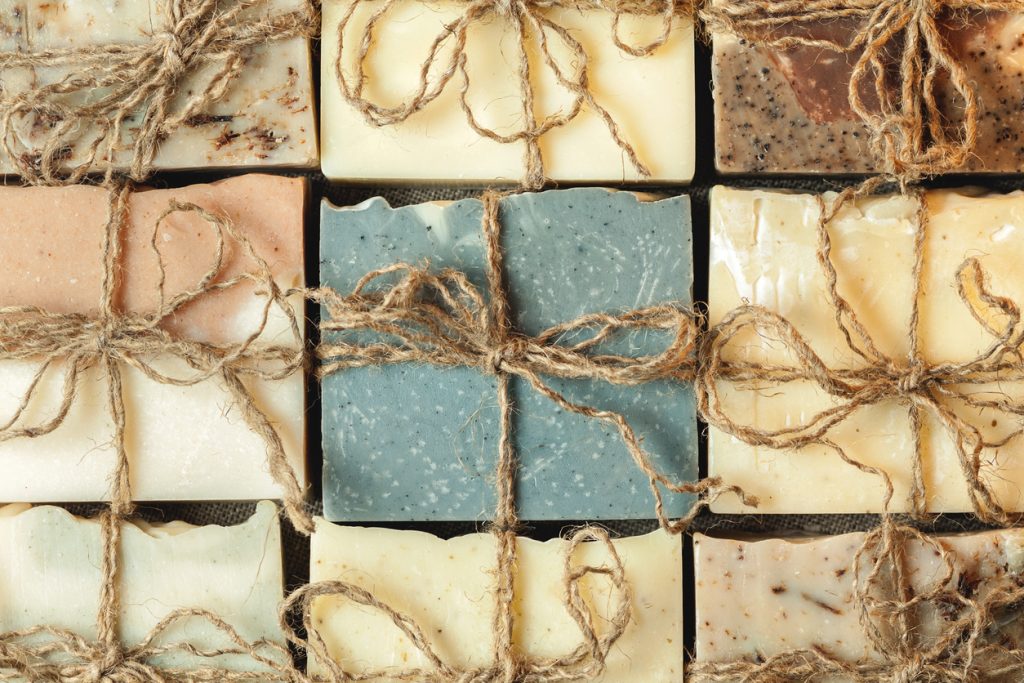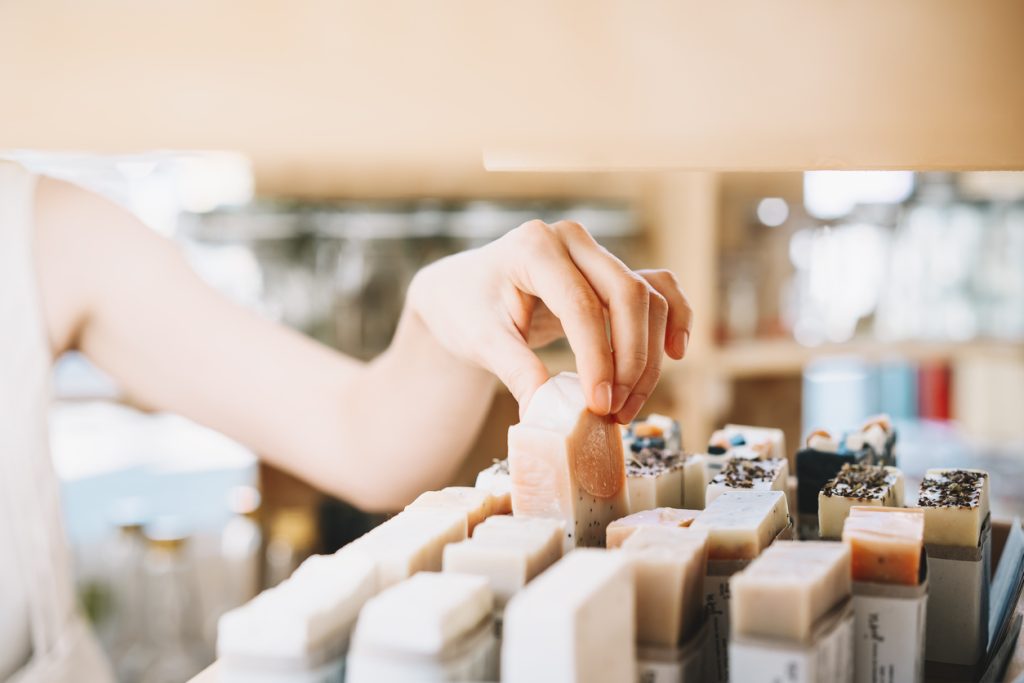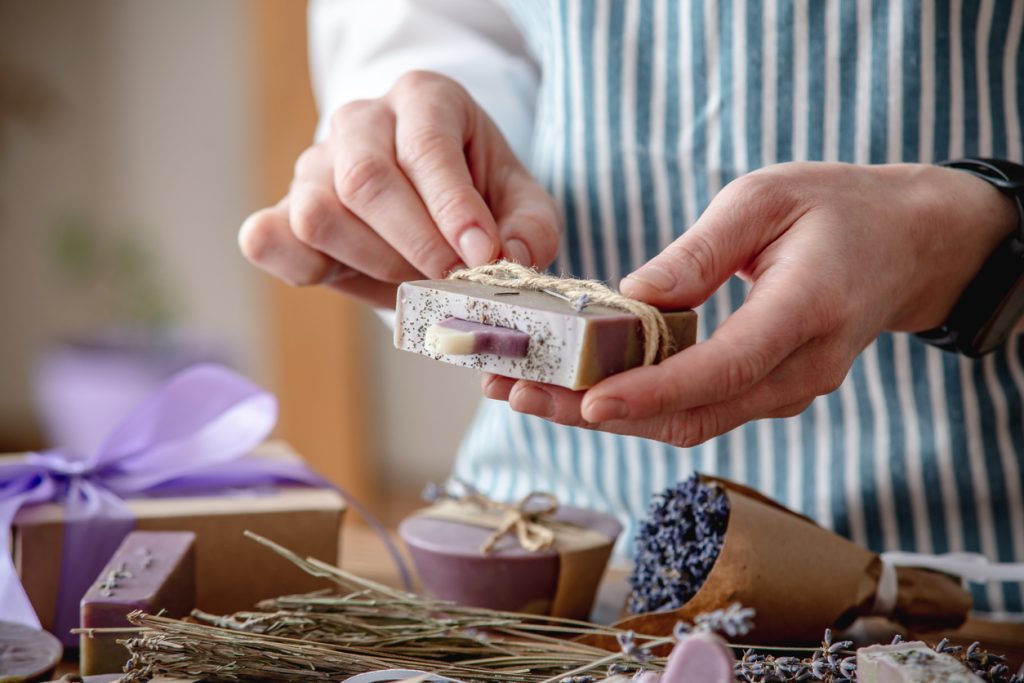
Opting for homemade or small business soaps over the big brand options for supermarkets can offer so many benefits ranging from personal health advantages to positive environmental impacts.
Homemade small business soaps often boast a list of natural, easy-to-understand ingredients. These soaps majority of the time avoid harsh chemicals like sodium lauryl sulfate and synthetic fragrances, which are unfortunately common in commercial soaps and can be irritating or drying to the skin. Natural ingredients such as essential oils, plant butter and herbal extracts are not only gentler on the skin but also offer therapeutic properties. For example, lavender for relaxation or tee tree oil for its antimicrobial properties. For those who suffer from conditions such as eczema these natural soaps can work wonders and provide gentle cleansing without damaging the skin barrier or causing further aggravation.

The production of small-scale, artisanal soaps typically has significantly lower carbon footprints compared to the mass production to the mass production processes of large soap brands. Small soap makers often prioritise eco-friendly practices, such as sourcing local ingredients and reducing transport emissions. Additionally, packaging for homemade soaps tends to be minimal, biodegradable and very environmentally forward-thinking, in contrast to your mass market soaps which are covered in plastic packaging.

One of the biggest things is you are supporting a local business. Purchasing from small businesses directly contributes to the local economy. It helps small artisans and entrepreneurs to sustain and grow their operations. This support is crucial to maintain economic diversity and resilience within communities. By choosing these products, consumers are not only getting a high-quality item but also helping the local community.

Handmade soaps are typically produced in small batches, allowing for a high level of control over the quality of each bar. Artisans take pride in their craft, often perfecting their recipes over the years and paying close attention to each and every detail, from the choice of ingredients to the curing process. This always results in a product that is not only aesthetically pleasing but also superior in quality compared to mass-produced alternatives.

Small soap businesses usually offer a diverse range of products, catering to various preferences and needs. This variety includes an array of scents, colours, textures, and ingredients, providing options for every skin type and preference. Consumers can often find vegan, gluten-free, or hypoallergenic options, as well as soaps tailored for specific uses, such as facial soaps, exfoliating bars, or shampoo bars. This level of customization is rarely available with big-brand soaps.
Many of the small businesses commit to cruelty-free practices, meaning they do not test their products on animals. This ethical approach is increasingly important to consumers who are conscious of animal welfare. By opting for these products, consumers can enjoy high-quality soaps without compromising on their ethical values.
Small businesses often operate with a high level of transparency regarding their ingredients and manufacturing processes. This openness allows consumers to make informed decisions about what they are applying to their skin. In an age where consumers are increasingly conscious of the contents of their personal care products, this transparency is highly valued.

With their unique designs, scents, and packaging, handmade soaps make for thoughtful, personalized gifts. Whether for a special occasion or as a token of appreciation, these soaps can be a charming and practical gift choice, often reflecting a level of thoughtfulness that mass-produced items cannot match.
Opting for homemade small business soaps over supermarket options is a decision that brings multiple benefits. Not only are these soaps better for personal health and the environment, but they also support local economies, offer higher quality and variety, and align with ethical practices. While supermarket soaps might be more readily available and sometimes cheaper, the long-term benefits of supporting small-scale, natural soap makers are significant and far-reaching.


